
06 Apr Outlaw Reflection: Paddle Moon
The end of ski season marks the official start of Telluride’s anodyne off season, when many locals hit the road in search of adventure near and far. This story by former Telluride local Oleh Lysiak is about one perfect solo fishing expedition in a kayak on Lake Powell. Read it and I promise you will smell the striped bass fillets cooking in the skillet– and turn your car southwest in the direction of Utah. Happy trails. And tales.
PADDLE MOON was published as FISHING WITH UNCLE O in The San Miguel County Post February 21, 28 and March 6, 1996.
PADDLE MOON
Bullfrog Marina madness behind me, I stroke like a scalded rat to get away from the noise, congestion and confusion at the launch ramp, parking lot and docks.
The white-tipped paddle blades plow the lake harder every stroke until a bow wave and a wake appear. I keep an eye out for the ferry, loaded cruisers, blitzed houseboat skippers, water skiers, overpowered bass boats and wild wave scooters.
The Orca, my 18′ red and gold fiberglass sea kayak slices through Lake Powell noiselessly, nose pointed at the cut between the islands where Bullfrog Bay and Hall’s Creek Bay meet and the channel for Lost Eden Canyon begins.
I find a source of energy in the anger I feel. Despite the five-mile paddle across the bay, I don’t let up until I’m out of the way of the idiocy.
The Orca is a dream when I slide in the cockpit, roll hips, lean back, snap on the screaming yellow sprayskirt, touch toes to rudder pedals, take hold of the paddle, shove off and dig in with the first wrist roll.
The afternoon wind picks up and a squall soaks me in a matter of minutes. It’s a hot day and the rain is welcome. The wind, on the other hand, turns the lake into a nasty, short chop and makes headway difficult. I struggle with the chop and wind until an expansive beach appears and I land the Orca softly, de-rig and make camp.
Everything I need is in the Orca. The Thermarest and sleeping bag are forward, behind the flotation bag in front of the rudder pedals; the day bag with sunscreen, sunglasses, maps, mini-binoculars, lip screen is rigged starboard; fishing pole and sailing rig port; first aid kit and tackle box behind the seat secured with shock cord. The aft compartment, separated from the cockpit by a fiberglass bulkhead, contains tent, kitchen, fuel, groceries, snorkeling gear and waste disposal system.
Once I have the Orca up on the beach, I carefully de-rig, set up the tent to get out of the weather, hook up the white-gas MSR one burner and whip up a cup of Swiss Miss before cooking a dinner of noodles spiced with freeze-dried veggie soup. I have cookies for dessert and a brandy flask to nip on. I forgot cigars on this trip, but that’s better than forgetting toilet paper.
The wind dies before sunset. I build a small driftwood fire and rig for catfish. The fish aren’t biting, but nips of brandy work their magic. I think about a raven-haired jack Mormon girl I got intimate with on the seat of my pickup one night in Moab, women beautiful as her don’t come along often. I couldn’t shake the feeling she’d gotten more than a one-night stand piece of me. I run through visions and revisions of her until Orion rotates towards dawn in the immense Utah sky and the fire cools to embers in ash.
Coffee first thing, the MSR stove is tricky to light, but I have it down. Then it’s crunchy granola for breakfast with raisins and nuts handmade by the organic meisters at the co-op in Moab. Delicious, nutritious, excellent fuel and easy to deal with when you’re strapped for space. I’m the engine, captain, crew and life-support system, a Spartan and organic setup. The simplicity of this adventure appeals to me.
Teachers in my life took time and effort to get solid basics through my thick Ukrainian skull. With adventure you need to remember the more you carry, the more you have to deal with, the more you have to maintain. For me it’s about the spirit of adventure, not the ease or comfort involved. What I require are essentials and faith in my ability to survive. I’m speaking on my own behalf. People consider me foolish. Thank you. We don’t go to the same places for the same reasons. Leaves me room to move. And I need a lot of room.
“Too Tall” Simmons, a legendary adventurer, surmised I shouldn’t have a motorized vessel because of my quick temper, short fuse and inability to deal with things mechanical. He is familiar with the story of how I heaved a brand-new Johnson 40 horsepower outboard into Lake Powell after it refused to operate as advertised. It may not have been the best solution but it was my solution at the time. I immediately had to deal with a whole different set of circumstances about how to get back to the marina, which was over 30 miles away. I had a backup, a 10hp Honda, which ran slowly but dependably. The Johnson went down in waters close to 200′ deep and is making good fish habitat by now.
“Too Tall” told me I was a better engine than anything I had to work on mechanically and the physical exertion would hopefully keep my temper under control. He’s right. I’m a good engine.
The lake at daybreak is the chatoyancy of moonstones in emerald light rippling with elongated fingertip breezes, sandstone cliffs immense and graceful behemoths sculpted by eons of wind and rain moving incessantly to a perpetual drummer we can’t hear as we scurry to keep up with something none of us comprehend.
Cool at daybreak on the lake, my tiny breakfast fire crackles, smokes, spreads pale blue smoldering driftwood incense on morning air.
I watch a spider spin a line between two fledgling red-skinned tamarisk growing out of the sand, an acrobat among huge sandstone slabs. He makes his final pass, a dancer upside down, audacious, tiny with enormous attitude. He disappears in the boulders.
Show’s over, coffee’s done, Orca’s rigged, sun’s over canyon walls. The first few dozen paddle strokes work out the kinks. The seayak slices through the azure deep green stillness of the lake with ease and purpose.
Occasional ravens cruise canyon walls, caw recognition, soar with an eye for opportunity.
Raven is the messenger between life and death in the lore of Indians who occupy this land. Raven stole the sun and gave it to mankind, stole fire so that it could be forever in the world, originated death. Raven is a trickster.
For years I consider ravens a nuisance on expeditions. They come to steal whatever they can if I walk a few yards away from camp, let alone leave camp and wander off. They teach me to keep my act together, tighten up. After a while I leave scraps, crackers and whatever I think they might enjoy. This is survival to them, not a vacation. They’re excellent opportunists, beautiful creatures who survive in an unforgiving land. I discover that ravens and I share endearing characteristics, feel we’re kindred spirits despite the fact I’m a blue-eyed white boy. I smile whenever I encounter ravens now because it’s like seeing iridescent black spirits of old friends.
The sun is up and I reach into the Orca for my expedition hat. Serena got me to wear a wide-brimmed hat on expeditions. She is an excellent watercolorist, my dear friend and an accomplished adventurer. She rows her own rig down the Grand Canyon whenever she gets the opportunity.
On a river trip down Labyrinth Canyon she convinces me to wear a white Resistol I bought in Durango years ago. I never could wear cowboy boots or hats. I’m an old beatnik, not a cowboy. I have the Resisitol on when the Orca flips in a cross current. The Resistol stays on my head, sags with river water and remains the exact same shape today.
I’m a couple miles down lake, stroking steady, looking for a place to fish. The on sale Walmart composite rod with the Mitchell reel is rigged with a Shad Rap deep diver lure, secure in the paddle holder on deck. Now it’s a matter of finding a fishy-looking place, which usually means structure, rocks, protrusions, constrictions.
Years of fishing Lake Powell have narrowed the bass lure selection down to the Shad Rap: works well for largemouth, smallmouth, stripers and I’ve hooked crappie with it.
If you’re into fishing for northern pike, walleyes, crappie or catfish then a whole different world opens up and there’s no end to the rigs you may have to come up with.
The absolute best bait for stripers on Lake Powell is frozen anchovies on a double-barbed Mustad hook. But when you’re fishing out of a kayak with no refrigeration to keep the anchovies from smelling up the works, a Shad Rap is the ticket.
For largemouth the plug is best bounced off the rocks and often you’ll get a hit on the drop so you have to be ready. Sometimes a bass retrieve will get them to hit it and often a striper will take it if you let it dive down and give it a slow, steady retrieve. Stripers feed on shad so it’s no wonder the Shad Rap works well. I don’t mean to say other lures don’t work as well – just that this particular one has come up with results over years of fishing. It’s also good in salt water rigged with stainless hooks.
This morning I hook into a couple largemouth, take them along for a ride on a stringer. Close to noon it’s hot in the Orca. I stop for a skinny dip after the long wall before Annie’s Canyon. The cool swim stretches muscles. I duck into an alcove for a lunch of Stoned Wheat Thins, peanut butter and raspberry jam, a couple slices of cheese and an apple.
Motor heads are out in force screaming around the lake. I have to be careful to keep the nose of the Orca into the wake waves made by the bigger vessels. Most people are nice enough and wave but there’s always some jerk who wants to see how close he can come, a small price to pay for the enjoyment I get out of being on the lake.
The wind picks up every afternoon, I put my head down, keep the paddle low and work into the bluster. When the attitude of the canyon changes around a bend I take advantage of wind shift and make time.
I’m ready to scream because of the wind and seemingly never-ending straight corridor I’m in. A minute canyon opening appears on the right and I slip in. Immediately the wind is gone, there’s blessed shade, an extraordinary camp, a soft sand beach, plenty of firewood, two fishy-looking pools and sandstone walls at least a hundred feet high streaked with desert varnish — a scene of out a movie except I’m here in the midst of it.
Exhausted, I’m asleep in seconds on the cool sand. When I wake I wonder what it is I do in life that’s so important to keep me from places like this. I’m hungry, it’s time to de-rig, set up camp, fish before dinner.
Two smallmouth are on the stringer in a matter of casts. I let them get acquainted with the two I caught earlier. Dispatched, filleted, they’re shook in a ziplock of Uncle O’s Yummy Fishfry Zango as heated extra virgin olive oil smokes over campfire flames.
Fresh bass filets with hand squoze lime perfect an evening begging for a brandy after dinner. The small but lively fire entertains under soft shoe sparkles of Utah’s desert sky.
Lake surface is mirror-slick, windless, chilly with a raw smell to it. I slip out of the campsite, so quiet before daybreak I hear the paddles as they cut into the water and drip droplets on the wrist roll. Less than an hour out of camp a rock fall below a sheer sandstone wall and cast appears. I bounce the deep diver lure off the wall into the cracks above the water.
Anxious, I react too quickly to the first strike. The bass shakes the hook and is gone in a flash of fins and tail and a swirl of the lake’s perfectly smooth face, disrupting reflections of sandstone walls streaked with black desert varnish. I cast a half dozen times but nothing doing. Thirty yards away from the rock fall I let the deep diver sink for thirty seconds and retrieve slowly, letting the lure drop every couple cranks on the reel.
A tug on the line and I give it a second before I set the hook solid. At first I think I hooked a log or got caught between rocks, but when the line heads in the direction I came from there’s no doubt there’s a BIG FISH ON, BUBBA! I ease up on the drag. The kayak moves without wind or paddling. Line comes off the reel steadily. I hang on until there’s an opportunity to reel in.
I pump the rod and reel in. A dozen cranks and the fish takes off again. The adrenaline rush has subsided and it’s all business now. The hook is set solid. This fish is mine.
He tows me to the middle of the channel. I keep the line from tangling on the kayak when he changes direction, think about Marcus, my good fishing pal and his favorite fishing saying: “There’s nothing compares to a throbbing rod in the morning.” Marcus said a lot of other good stuff in twenty years of fishing. I laugh and hang on to the rod, hooked into this fish, which tows me up and down the lake.
The walls of the canyon resound, tears run down my cheeks, but I don’t dare wipe them because I’m taking no chances with this fish. Too early in the morning for anybody else to be out on the lake so it doesn’t matter there’s a madman laughing hysterically, being towed to wherever this fish wants to take him.
Finally the fish tires and I reel him in. He’s beautiful – a striped bass gleaming silver with horizontal black stripes coming up from the darkness into the light play of sun rays penetrating the surface pale liquid blue emerald depths. I get him close to the kayak, slide my fingers into his gills, lift him out of the water and he’s mine, at least twelve pounds, maybe fifteen, best bass I ever caught in Lake Powell. I hook him onto the stringer and we take off down the lake for the mouth of Escalante Canyon a mile to the south.
The mouth of the Escalante is busy with powerboats. I keep the Orca close to walls, away from fishing boats, skiers and houseboats. I’m familiar with powerboat waves and wakes and play with the rise and fall of surge bouncing off narrowing canyon walls.
High on the slick rock there’s a shade-blessed alcove under an overhang. I pull in the Orca, filet and release the striper, pack my kitchen up the scalding rock into shade where I cook and eat fresh striper filets. There’s no fresher way to eat fish. If I brought seaweed and wasabe I could have fresh striper sushi, but I’ll leave that for a future expedition.
Paddling up canyon after lunch I meet two women in whitewater kayaks who’d come down the Escalante. They have the touched look of people who speak with ravens. We share conversation bobbing. I give them striper filets for their supper, and take my leave.
That night I share an alcove with a houseboat crew. They camp on one side of the alcove and I make camp high up on a ledge fifty feet above the lake on the other side, hardly notice the house boaters. If they make noise I don’t hear it. I find a moss-lined fern garden higher in the rocks. Water seeps silently out of the sandstone feeding the spot. I sit for hours, not thinking, not hearing, just being.
First hint of turquoise and scarlet in the raw, undefined desert sky I’m on the water. The canyon grows narrower. I paddle as if in a dream, a surreal quality to the morning light. The sharp crack of a beaver’s tail on still waters wakes me out of my reverie, the color of the lake is murky with silt, depth runs out. I turn back.
I hear ravens cawing, pull into an alcove, three take to the sky. The alcove is shady under the arched overhang with a narrow sand beach barely long enough to land the Orca, enough space for a camp. I de-rig the seayak completely and set up reveling in the comfort of the shade. In a narrow passageway behind a huge boulder I find a raven feather, a sun-faded red frisbee, a purple plastic sun visor from Maui and a cool and unopened battered old can of Coors.
The cool can of Coors I open immediately, have a sweet buzz in seconds, nowhere to go. I make a fire for company, a fresh pot of coffee with brandy each cupful, play in the sand, dig around, feel something sharp edged, pull out a pottery shard with what I guess are Anasazi designs. The adrenaline rush chills out the alcohol. I dig in earnest.
A sizable stack of Anasazi pottery pieces are piled when I feel something larger, my heart jumps at the possibilities. A blackened piece of moist wood surfaces and I calm down, may as well bury all of this stuff and let it be. As I dig to bury the stuff I dug up I discover what looks like a spear point. Turns out to be a flawless awl here for at least a thousand years.
Dusk settles on the desert. I run through possibilities of who lived here, how, why and when. Campfire smolders with the pungency of driftwood. The full moon rises and I still don’t know if I dream this or see it or what. But I feel I’m chestnut brown with waist-length black hair working on a flint weapon or tool in the moonlight squatting over a fire smoldering, flickering on and off the walls of an alcove. There is no lake. I see myself looking up at the moon. My eyes are blue.
Next morning I bury that stuff where it belongs, pack my seayak and paddle my wild white boy ass back where it belongs.
Editor’s note about Oleh:
I am reminded of the man every day. A talented sculptor, one of his mobiles sits on the coffee table in our living room. But I had not seen or heard from Oleh Lysiak for over 20 years. Ah, the wonders of social media. We rediscovered each other about a year ago, which was when I also discovered the artist is also a writer – at least nowadays – though making marks on paper is only one among a very long list of talents, some slightly sketchy.
A former Telluride resident, O.Z. Lysiak once worked as a San Miguel County journalist. He is also, as mentioned, an artist, author and poet. Two of his books: “Art, Crime & Lithium” and “Neighborhood of Strangers” are now available at The Wilkinson Public Library.
Given his street cred and the fact he wrote extensively locally in the bad old days, I asked Oleh if he would mine his files for past columns that might be of interest to our readers. I am thankful the man said “yes.”
The column name? We hold certain truths to be self-evident.


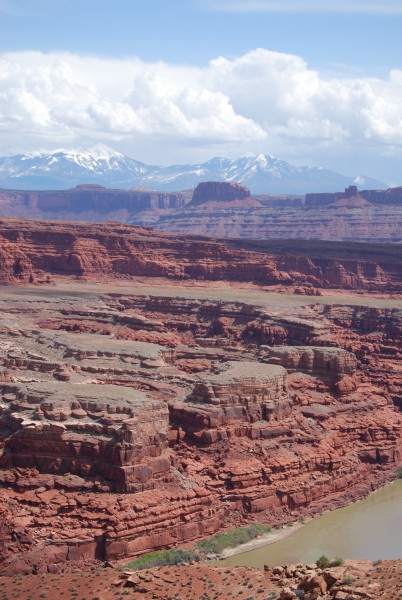
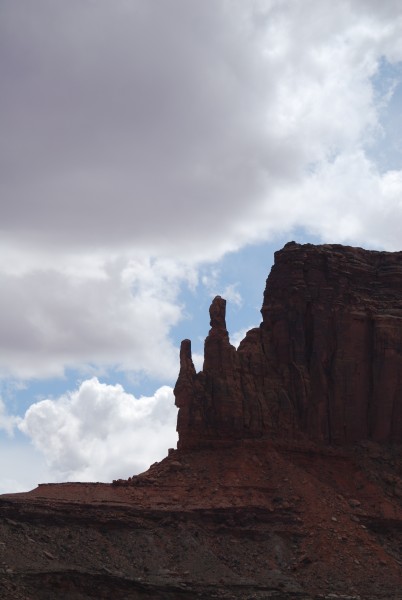
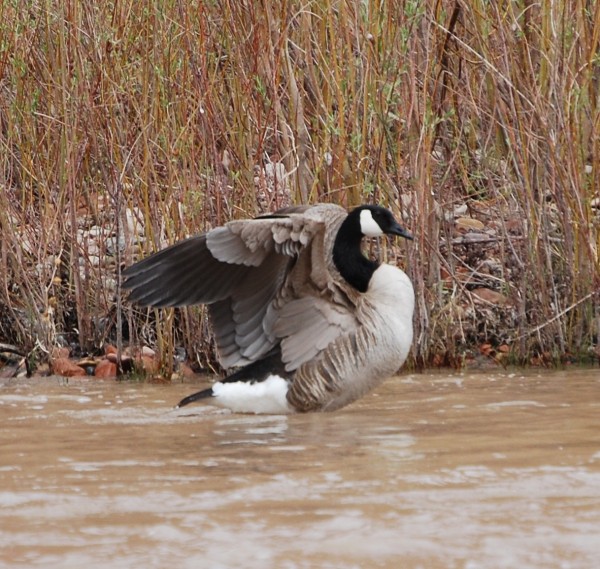
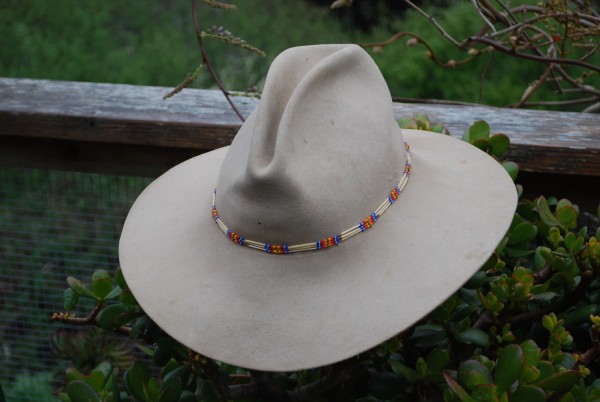
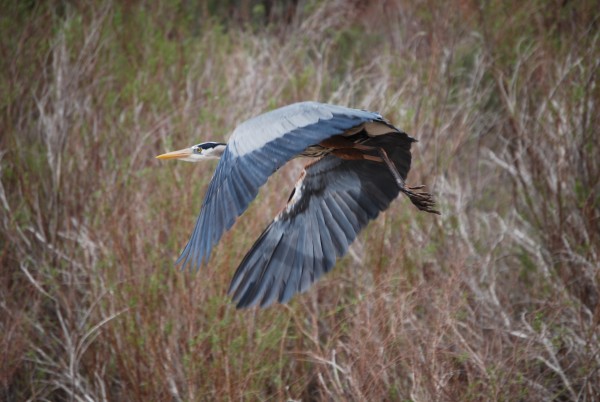

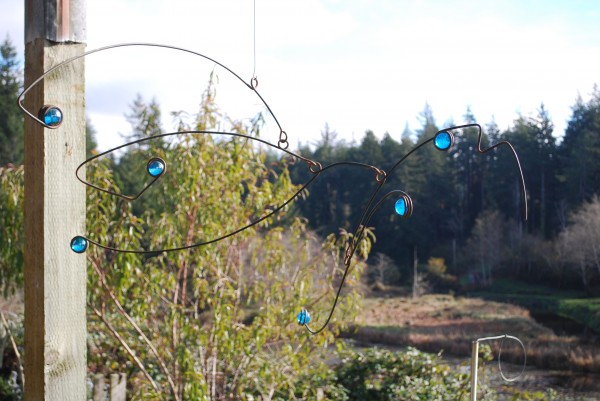
Sorry, the comment form is closed at this time.